The Hidden World of Las Vegas’ Tunnel Dwellers, the Community That Lives Below the Surface
Las Vegas is famous for its shimmering lights, lively nightlife, and grand casinos. Most tourists stroll up and down the strip, gambling, shopping, sightseeing, and eating all day. However, only a few visitors discover the labyrinth of underground tunnels beneath Sin City that has become a sanctuary for unhoused people.
Many people have heard of these tunnels, but few have seen them. Even some locals have confused looks when the underground tunnels are mentioned. Let’s explore this hidden world and the challenges faced by the people who call it home.
Origins of the Underground Tunnels
How this underground city began remains a mystery. Some say the tunnels started as a way for bootleggers to escape during the prohibition era, but that’s a common misconception—the city first started digging these tunnels to redirect water from the city.
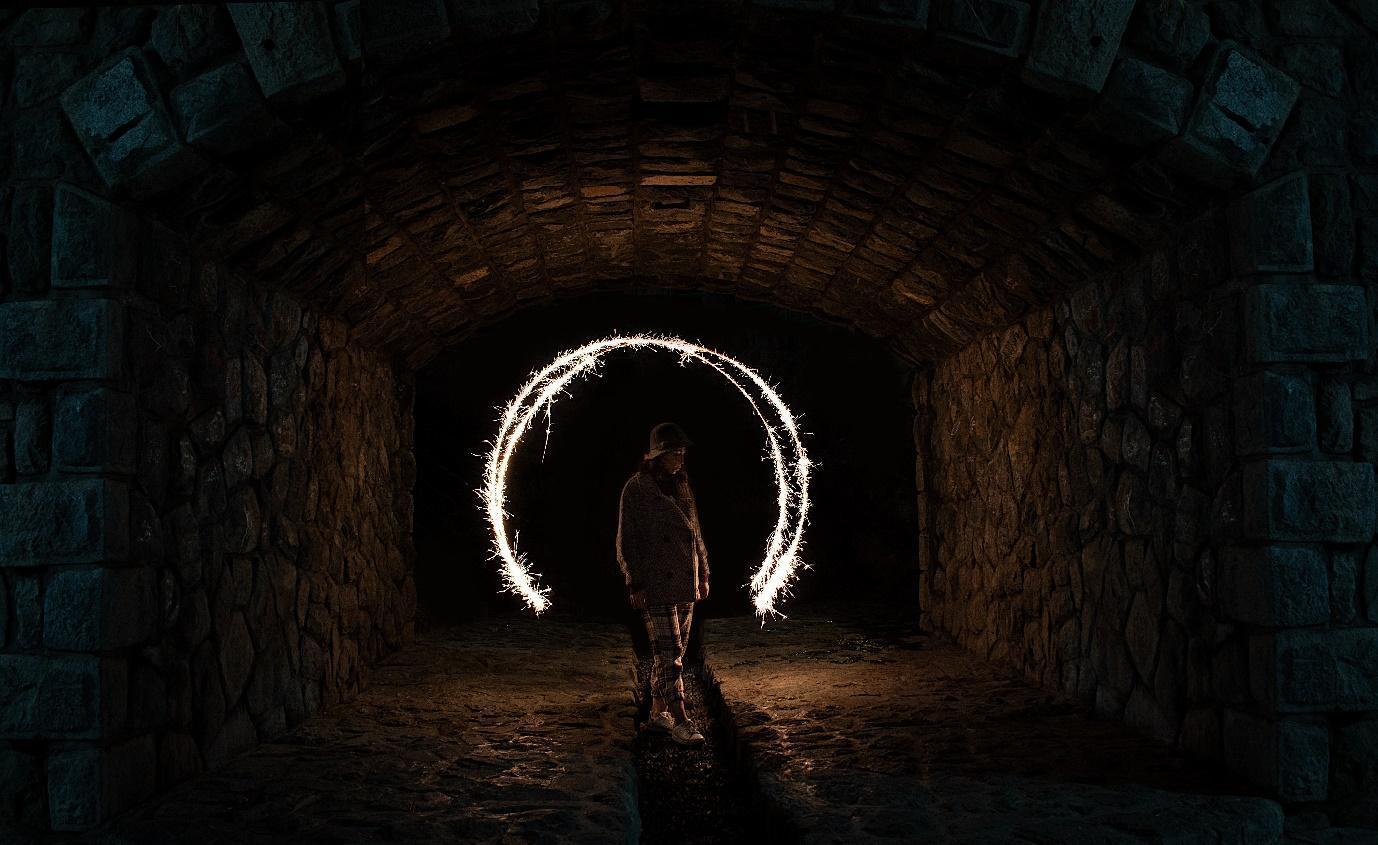
Source: Pexels
However, the government never expected what it would become years down the road—that its little project would become a lifeline for the unhoused community.
A Labyrinth of Tunnels
The maze of tunnels beneath Las Vegas is elaborate and fascinating. It encompasses hundreds of miles intended to capture and redirect water. There are several entrances to these tunnels all over the town.
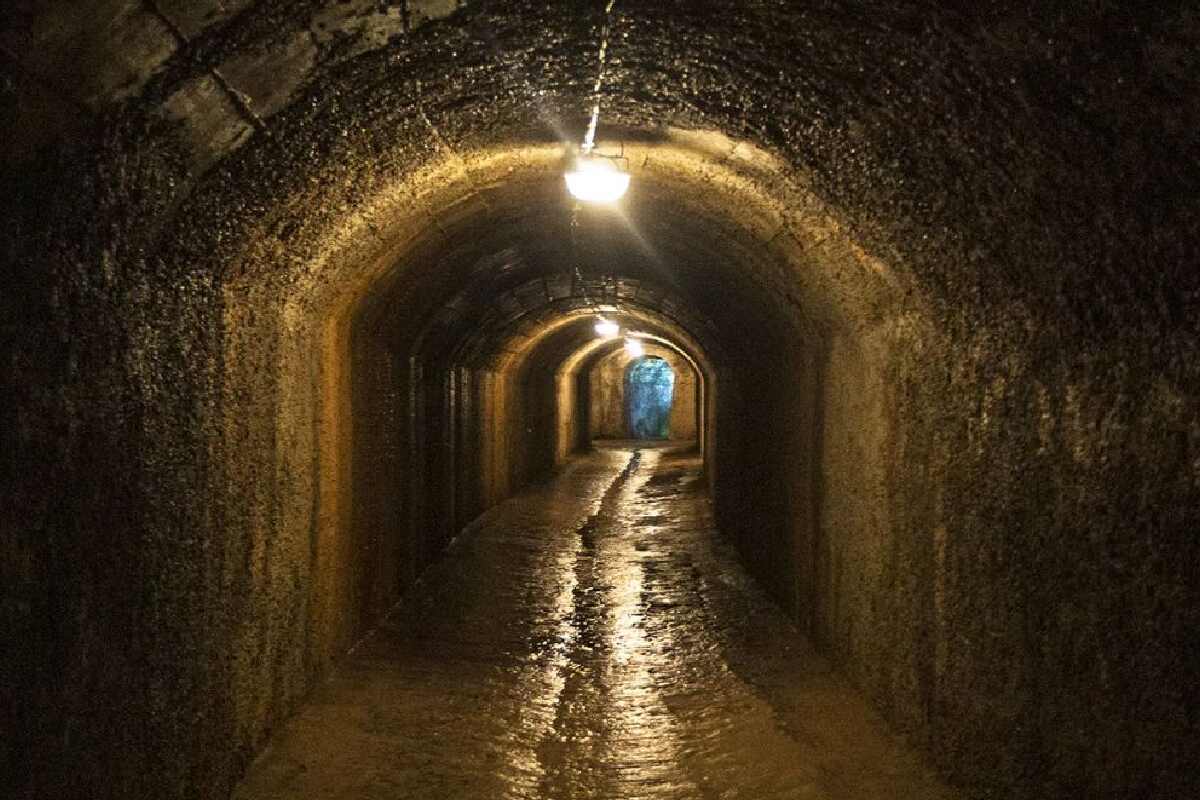
Source: Pinterest
Some of the biggest entrances are next to popular casino resorts like Rio, Caesars Palace, and the Flamingo. Although some tunnels are only 4-5 feet tall, some areas are as high as 15 feet.
Building a Life Underground
While the tunnels are mostly dark and damp, thousands of Vegas residents call these tunnels home. Sadly, the people living in this underground city are America’s forgotten.
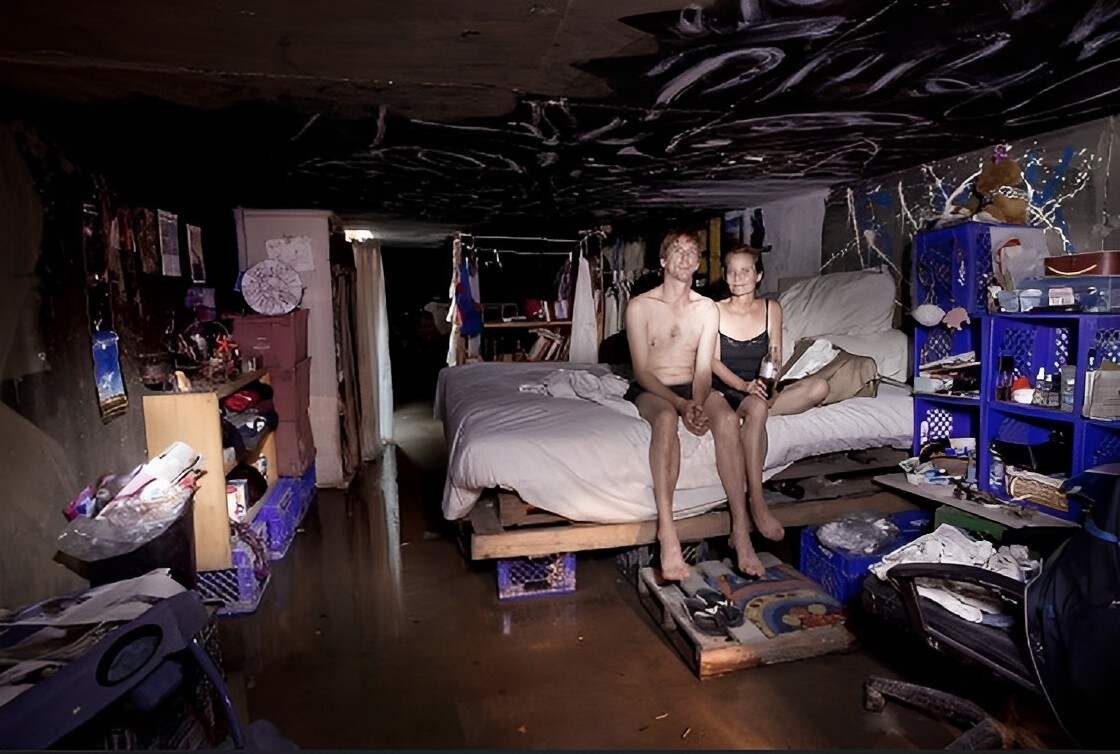
Source: Pinterest
Although the tunnels offer little comfort, it is a welcome shelter for those left behind by the country. Some of them are only living in the tunnels temporarily, while other tenants have made them their permanent homes.
America’s Housing Insecurity Epidemic
One may wonder how there are so many unhoused people living in the city. We can trace this condition to the housing insecurity epidemic in the US—over 200,000 Americans sleep in public places because they have nowhere else to call home.
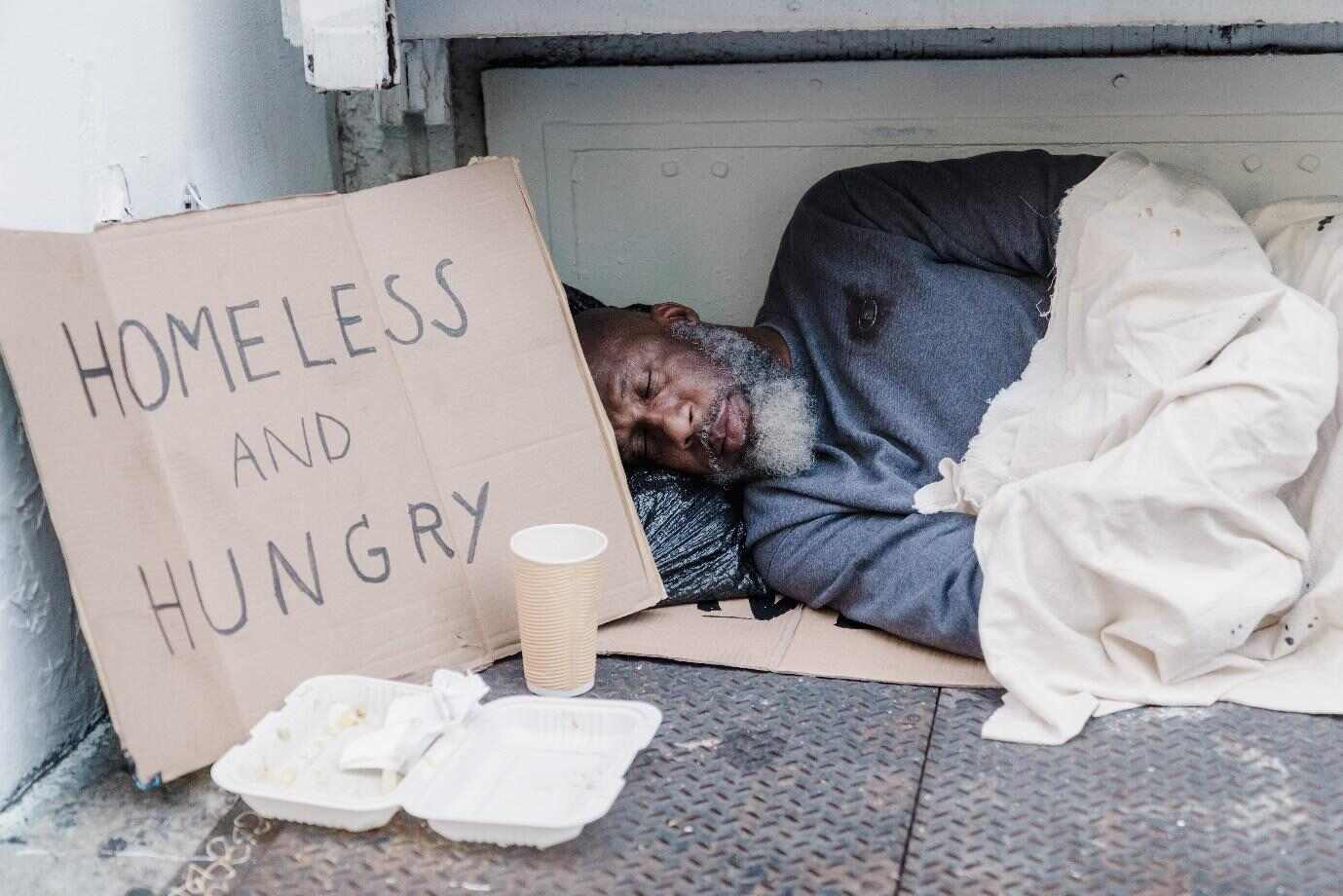
Source: Pexels
Thus, you can find hundreds of people crowding shelters, pitching tents, and sleeping under bridges in various towns. However, many have people found that the underground “city” offered lasting solace and decide to make a home there.
The Pandemic’s Toll on Housing
Although America already had a housing crisis, the pandemic only seemed to exacerbate the issue. Many came to accept it, but looked away and ignored the glaring problem.
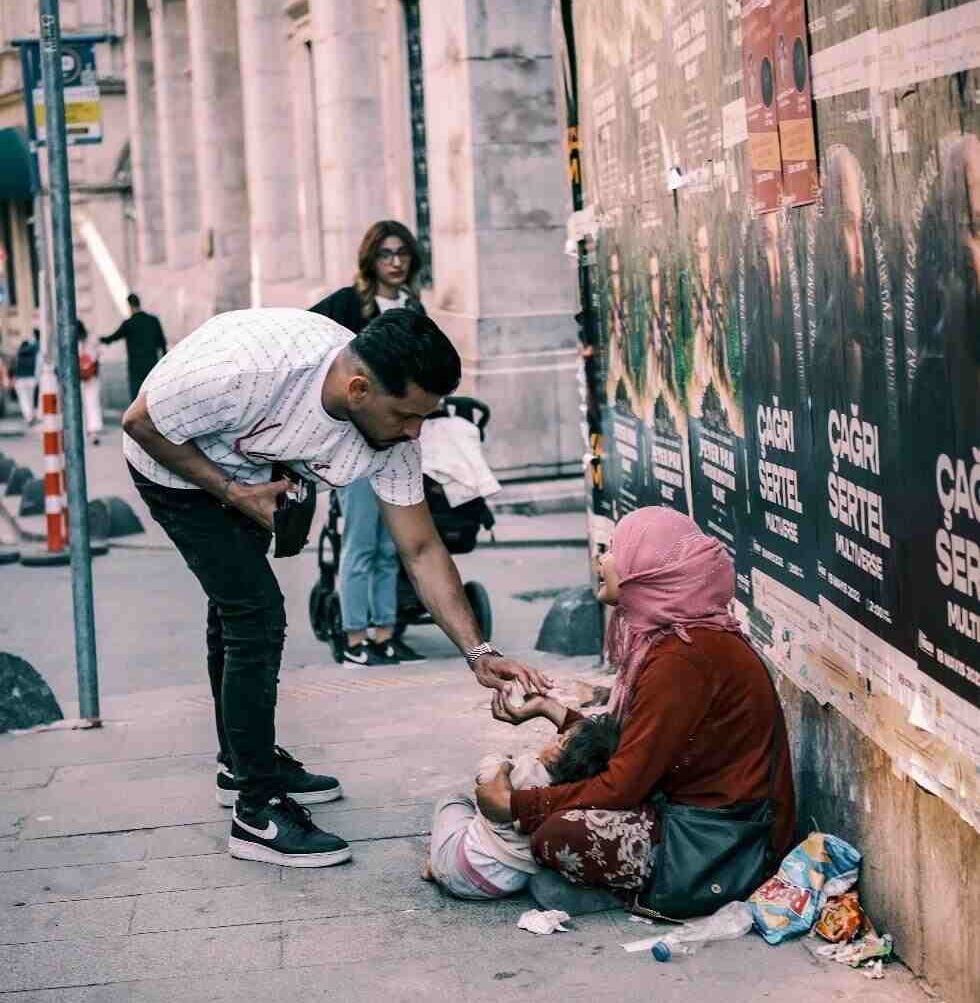
Source: Pexels
With most unhoused people sleeping under the city, it was easier to pretend that the growing crisis didn’t exist. The government turned a blind eye to the ever-increasing number of people moving to the tunnels, and soon, the underground city had thriving communities.
Finding Comfort Underground
The hidden community contrasts sharply with the bright signs glowing around the clock above the surface. There’s no fresh water below the city, and the only electricity comes from batteries.
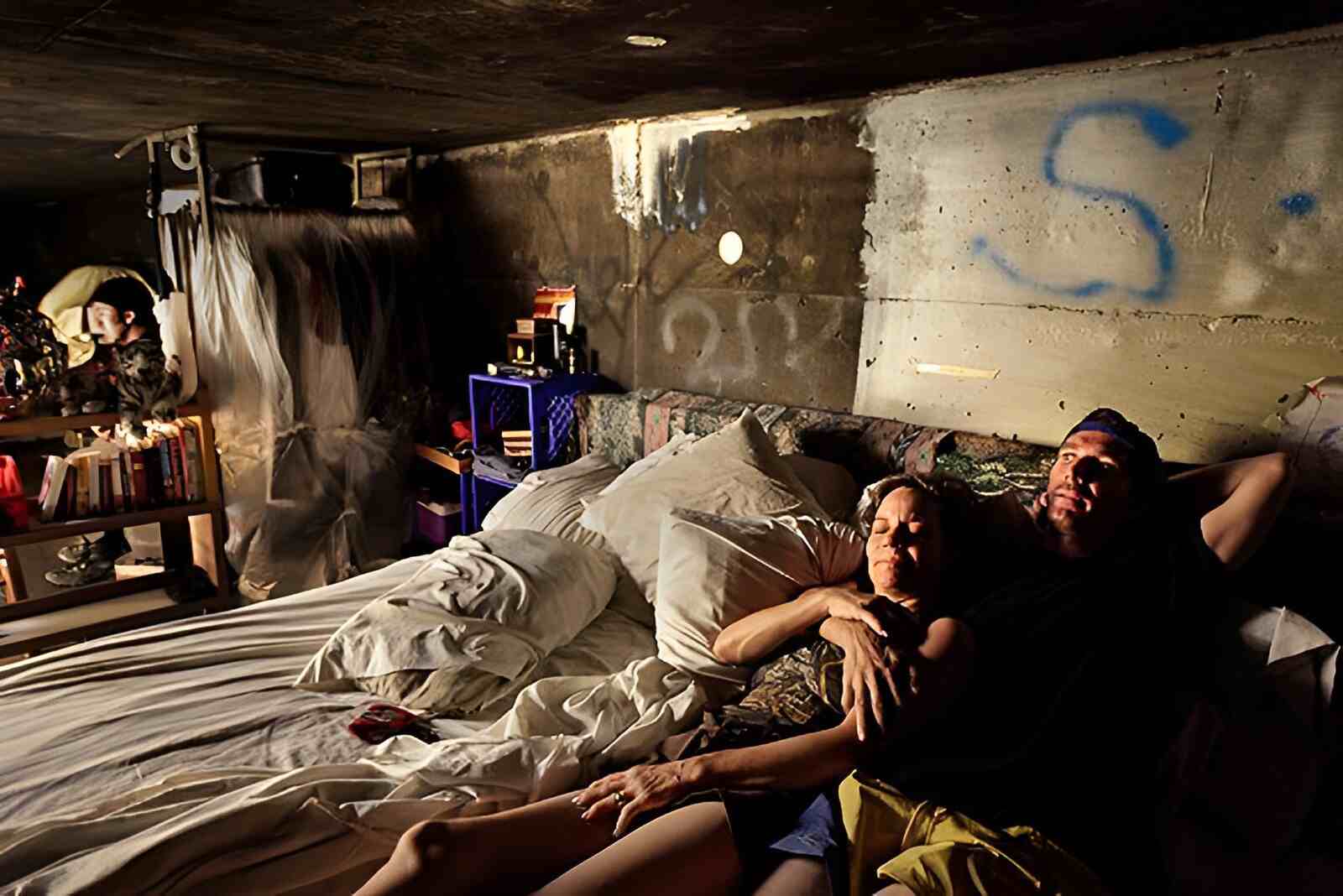
Source: Pinterest
However, the people living underground have managed to piece together what they can find while finding comfort in the little things. Each tunnel has its rituals and customs, and even unofficial leaders enforcing the laws.
Trapped in the Tunnel's Grip
Entering the tunnels isn’t always easy, as there’s little to no space left for new residents, and getting out can be even more difficult. Although many people would love to leave, most are afraid to explore the world beyond the tunnels.
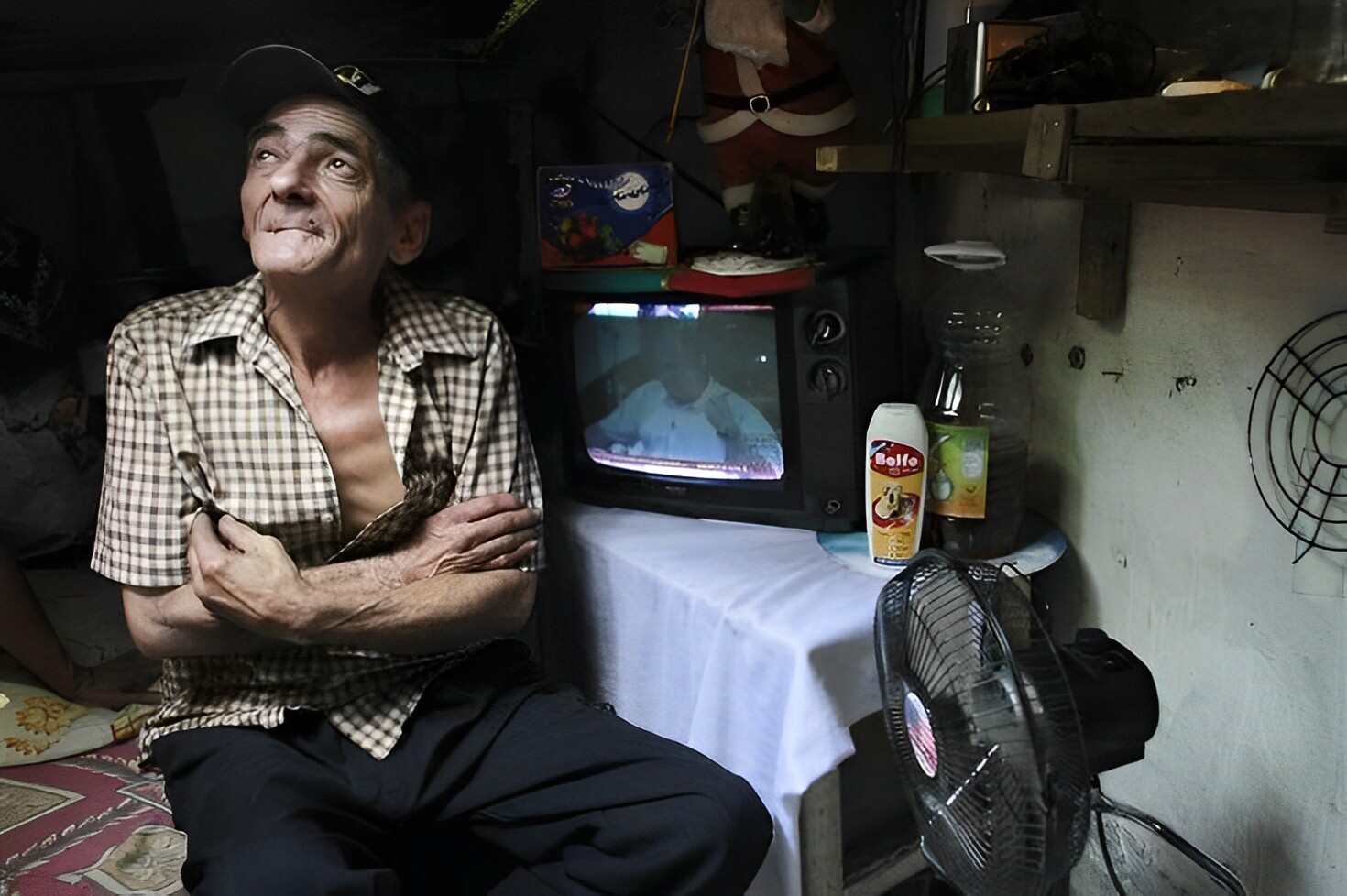
Source: Pinterest
The fear of getting to a place far more traumatic and dangerous than anything they’ve experienced in the tunnels keeps most people in place. The residents strive to survive each passing day, hoping that they’ll eventually be able to climb out of the darkness of the underground city.
Creating an Underground Haven
The people living in the city have created a haven for themselves using whatever they can find, including bed frames, barbecue grills, coolers, tables, and chairs.
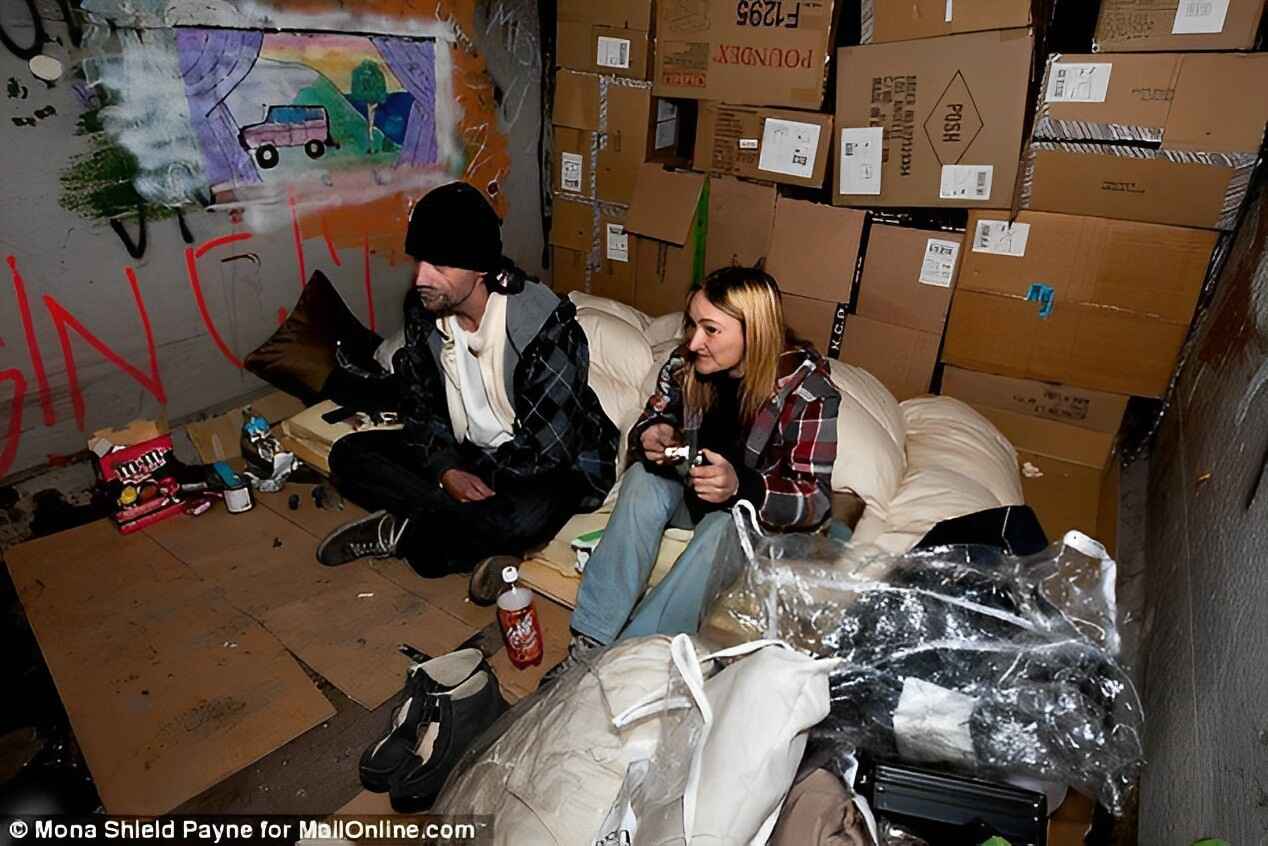
Source: Pinterest
Most of these items were pulled from curbs and dumpsters, but have helped create a cozy atmosphere for inhabitants. Many of the beds and bookcases are strategically set up a foot or two off the ground. Any guesses why?
Providing Shelter From the Storm
The underground tunnels were created to redirect floods from the city. Therefore, when the water comes through, it usually comes fast and hard. Due to this, the water sweeps away everything it comes in contact with.
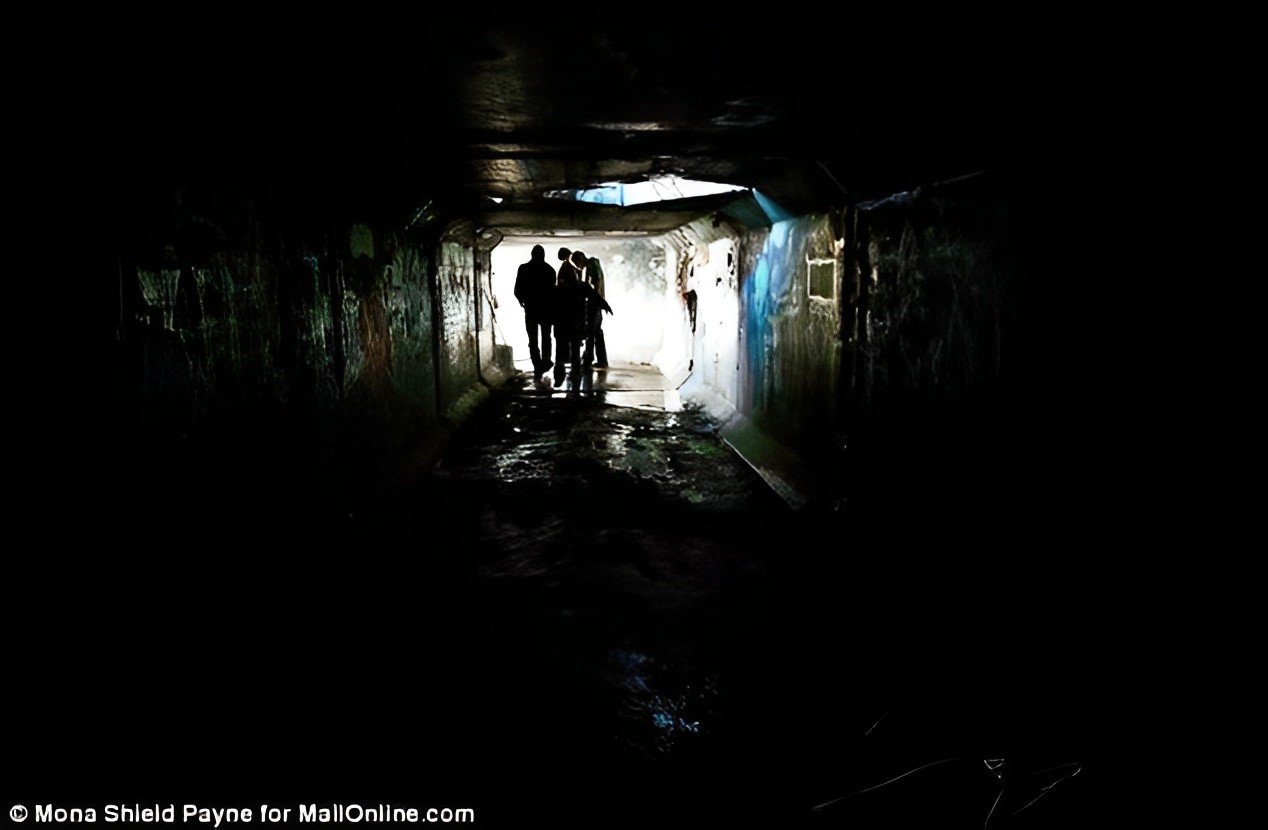
Source: Pinterest
The residents find creative ways to survive the floods, and try not to stay too far from the entrance since it’s easy to get swept away in the waves coursing through the tunnels. The powerful waves of water are dangerous enough to have deadly consequences, but people keep braving the threat and settling in the tunnels.
An Underground Struggle with Addiction
Although the underground city is considered a haven, it’s also filled with residents who struggle with addiction. It has also become a makeshift home for drug peddlers looking to stay off the radar of law enforcement.
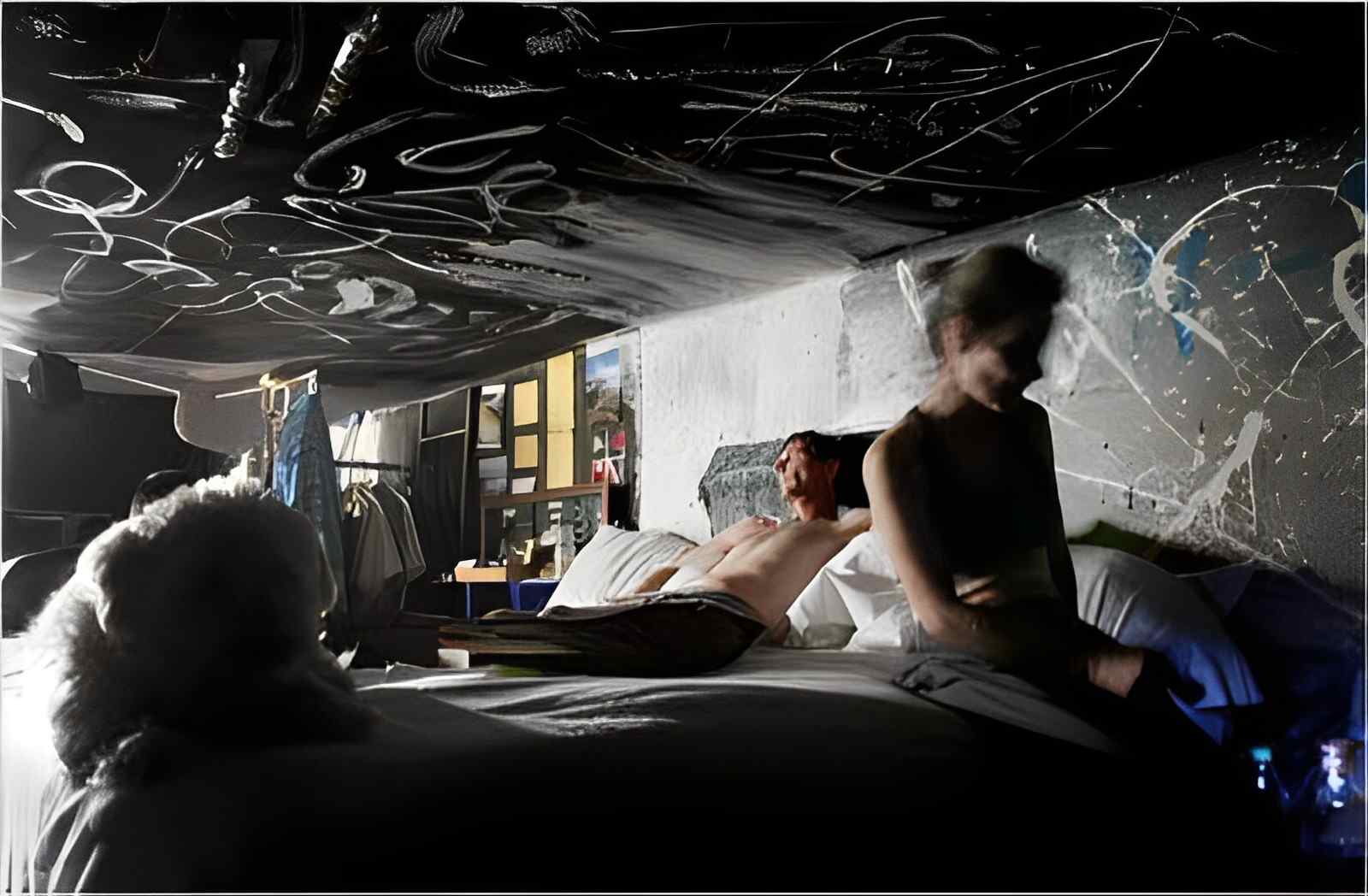
Source: Pinterest
However, not everyone in the city is an addict. Some people simply ran away from home and have nowhere to go or lost jobs and their homes. The tunnels offer some semblance of a home for people from all walks of life.
A Hotbed of Mayhem and Mischief
The floods aren’t the only danger faced by tunnel dwellers. The underground city is also home to violence and crime, and it has become a hotbed of criminals taking advantage of vulnerable people.
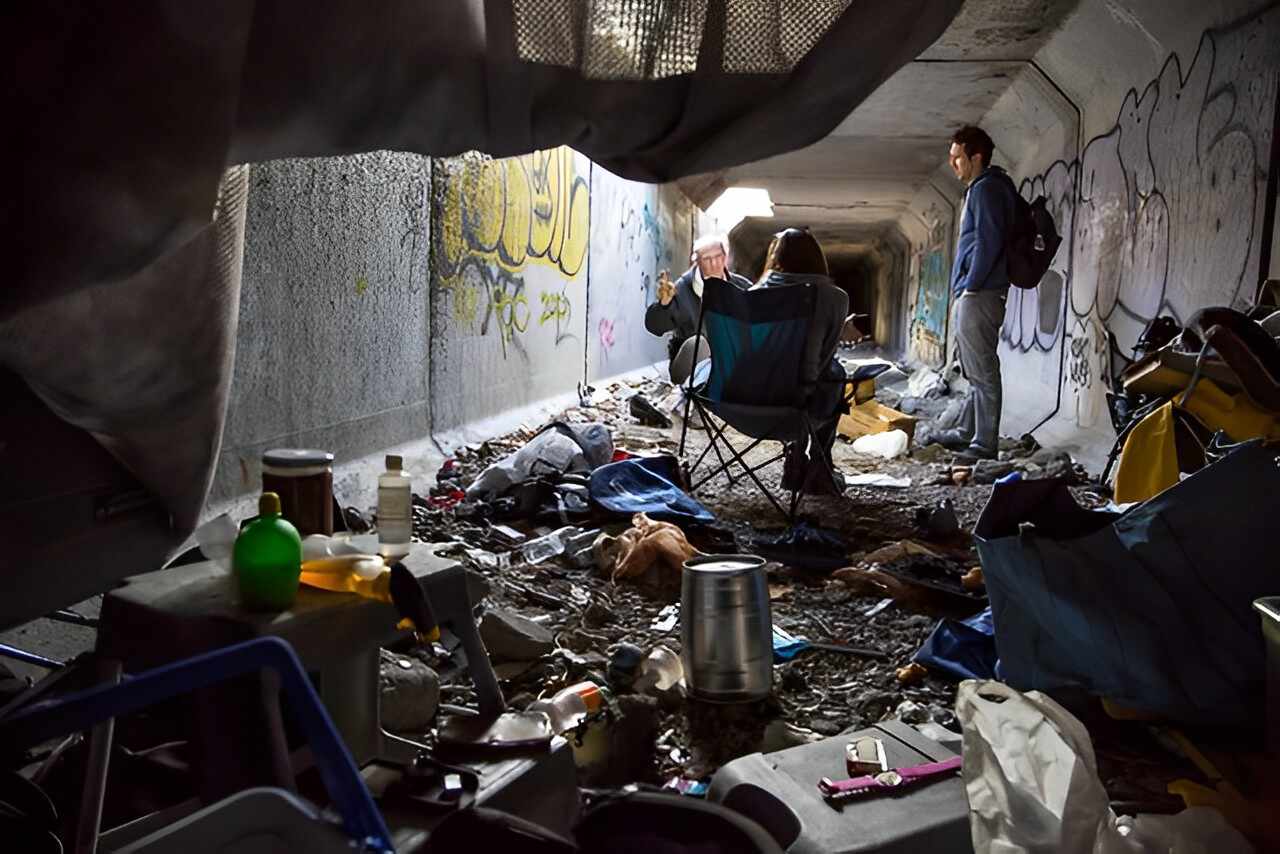
Source: Reddit
Several tunnel residents have been attacked by predators who prey on the unhoused community. Some are hiding from the law, some from their parents, and others from people who wish them harm.
A Sharing Culture
Despite the dangers plaguing the tunnels, there’s also a culture of sharing. This way of life developed due to the belief that there are times your life will be entirely dependent on your neighbor. It is also a great way to survive the horrors beneath the city.
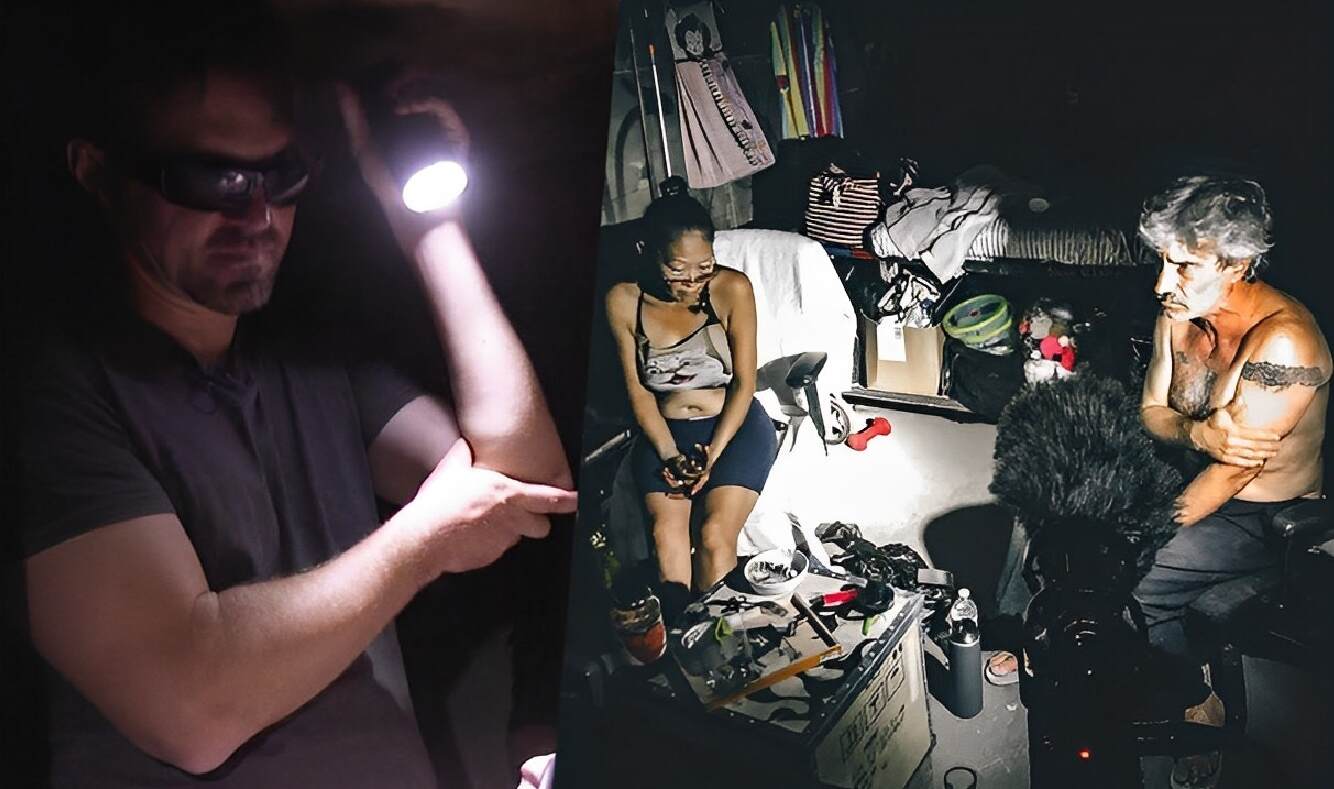
Source: Reddit
The tunnel residents look out for each other and share their resources. They’re happy to share, whether it’s a can of food or a sleeping bag. As a result, many have formed close bonds and become family along the way.
Establishing Law and Order
Due to the existence of life beneath the city, having law and order in the tunnels became imperative. Every community in the tunnels has elected officials and a mayor who keeps the peace.
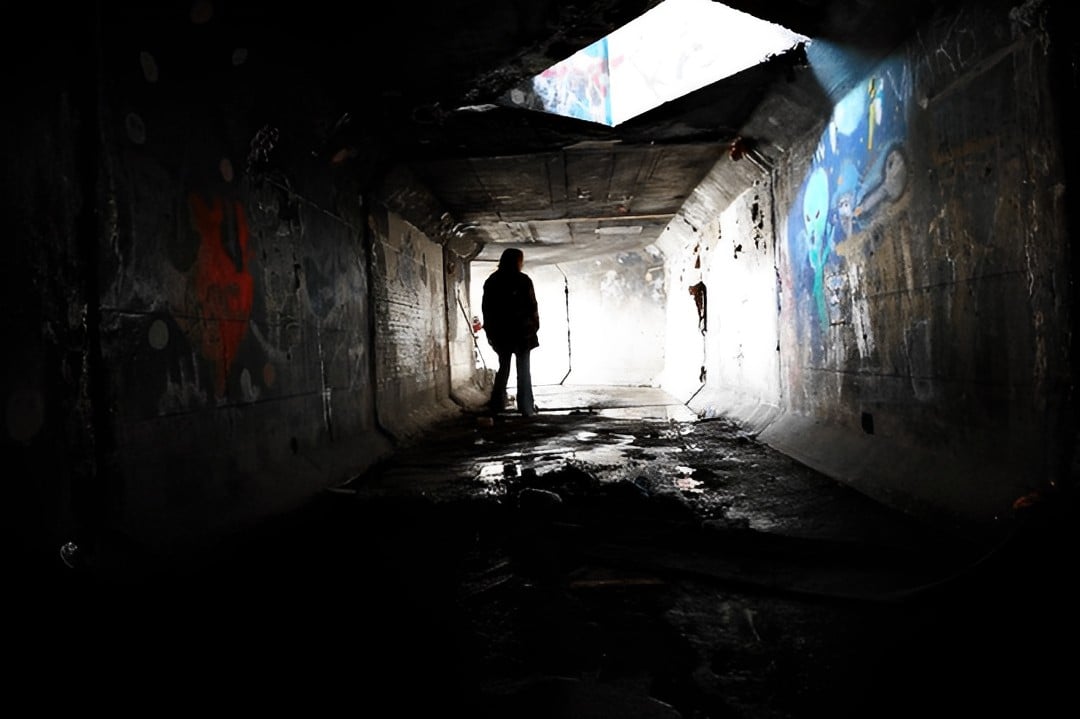
Source: Reddit
These officials are vital to the survival of folks living in the tunnels, ensuring that every resident is safe.
Enter Paul Vautrinot
Paul Vautrinot is a 34-year-old man with arm and neck tattoos always peeking out of his shirts. He is the executive director of the Shine a Light Foundation, a non-profit outreach program designed to assist those who live in the tunnels.
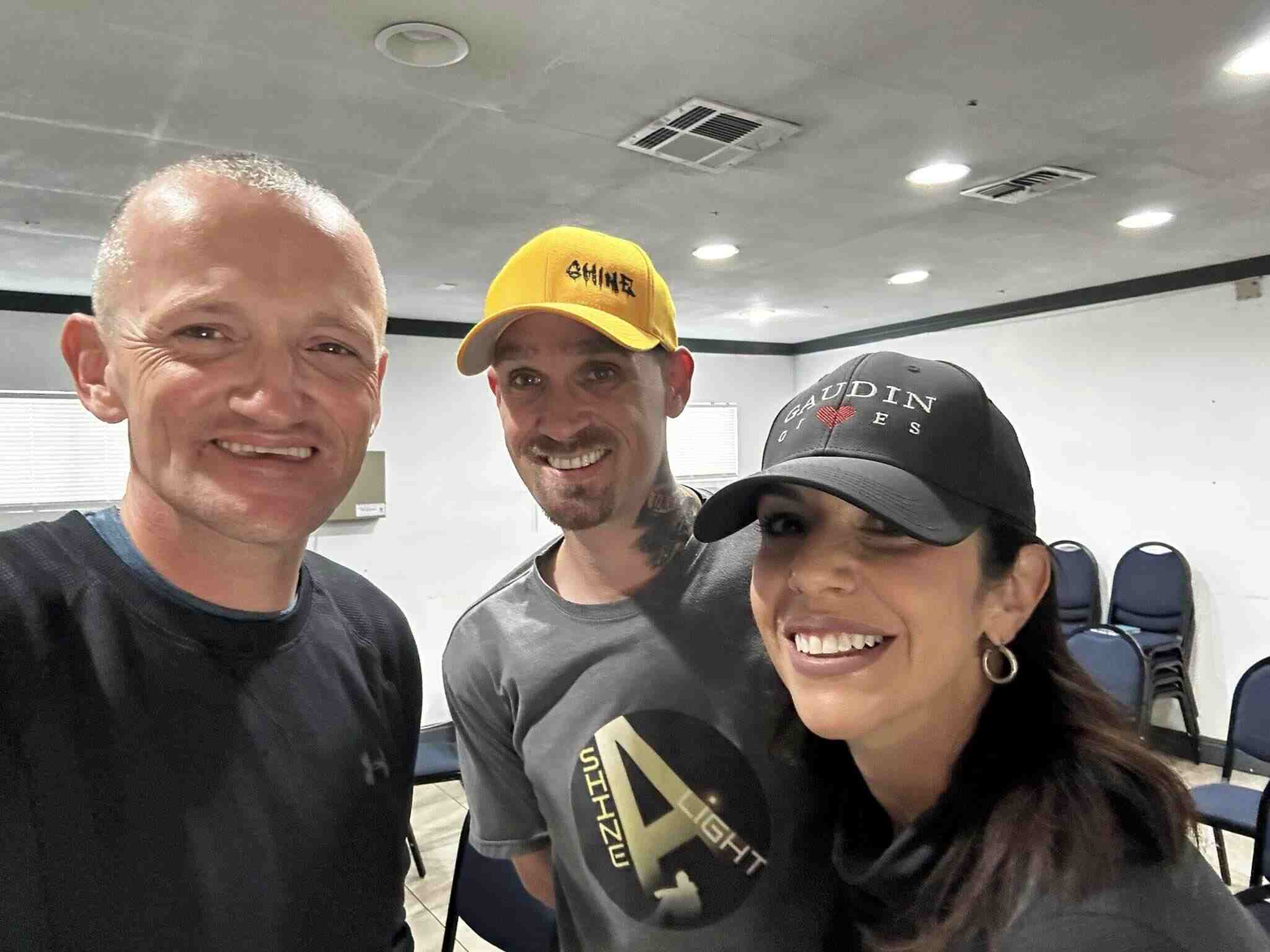
Source: Shine a Light Foundation/Facebook
Each year, Shine a Light helps dozens of tunnel residents with drug counseling, job training, and housing. However, Vautrinot wasn’t always in this position—you’ll never guess his origins.
Vautrinot's Rocky Beginnings
Vautrinot stayed in the tunnels for three years, and how he ended up there might surprise you. He grew up in Las Vegas with a mother who was an addict. However, Paul didn’t move to the tunnels to escape his mother.

Source: Pexels
He experimented with drugs as a teenager, and at 18, the daughter of a wealthy businessman offered Paul a taste of opium. Henceforth began Paul’s long struggle with heroin.
Life on the Streets
It wasn’t until a year later that Paul began to live on the street. One day, he met a group of older men who invited him down to their tunnel. There he saw a new life beneath the city he had always lived in.
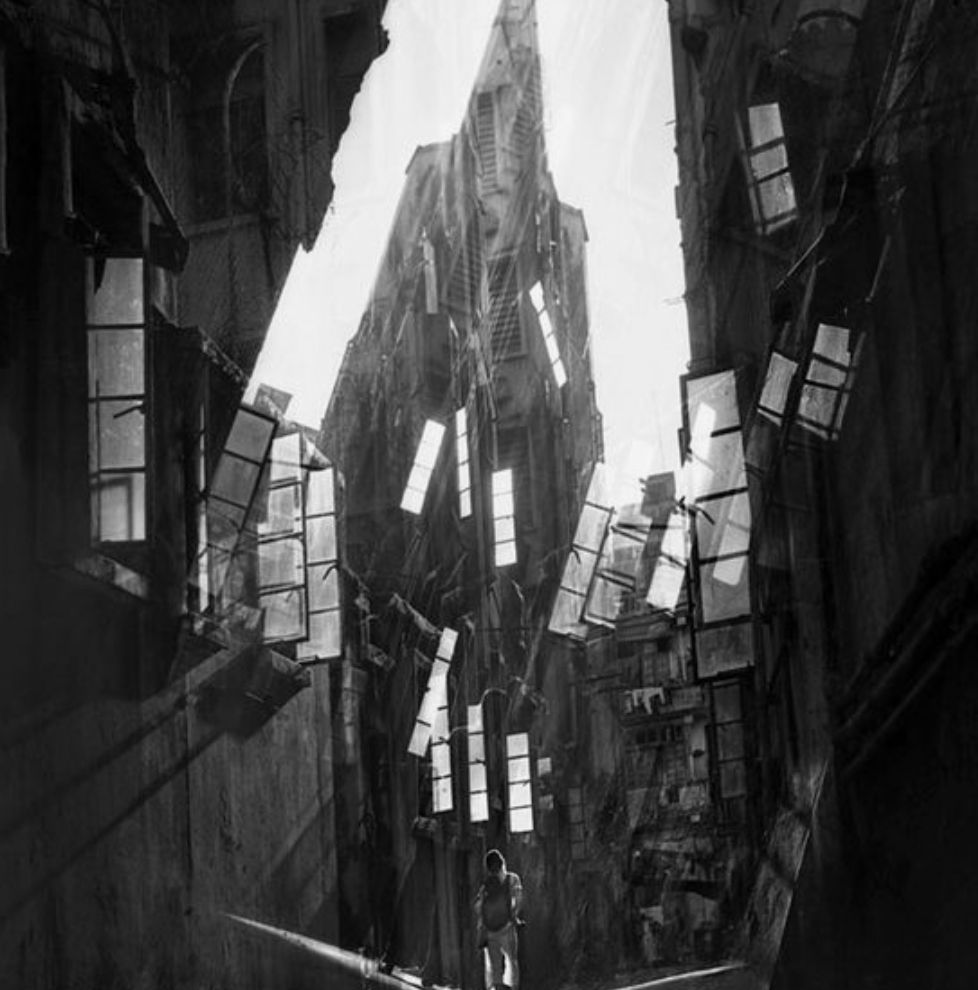
Source: Pinterest
Some of these men had lived in the underground city for almost a decade. They had furniture, a cooler filled with cold beers, and a fire pit. They offered Paul a mattress, a bed, and a nightstand so he could take up residence in the tunnels.
The New Man on Campus
They offered Paul a mattress, a bed, and a nightstand so he could take up residence in the tunnels. Being the newest resident in the underground city, Paul’s bed was the closest to the entrance.
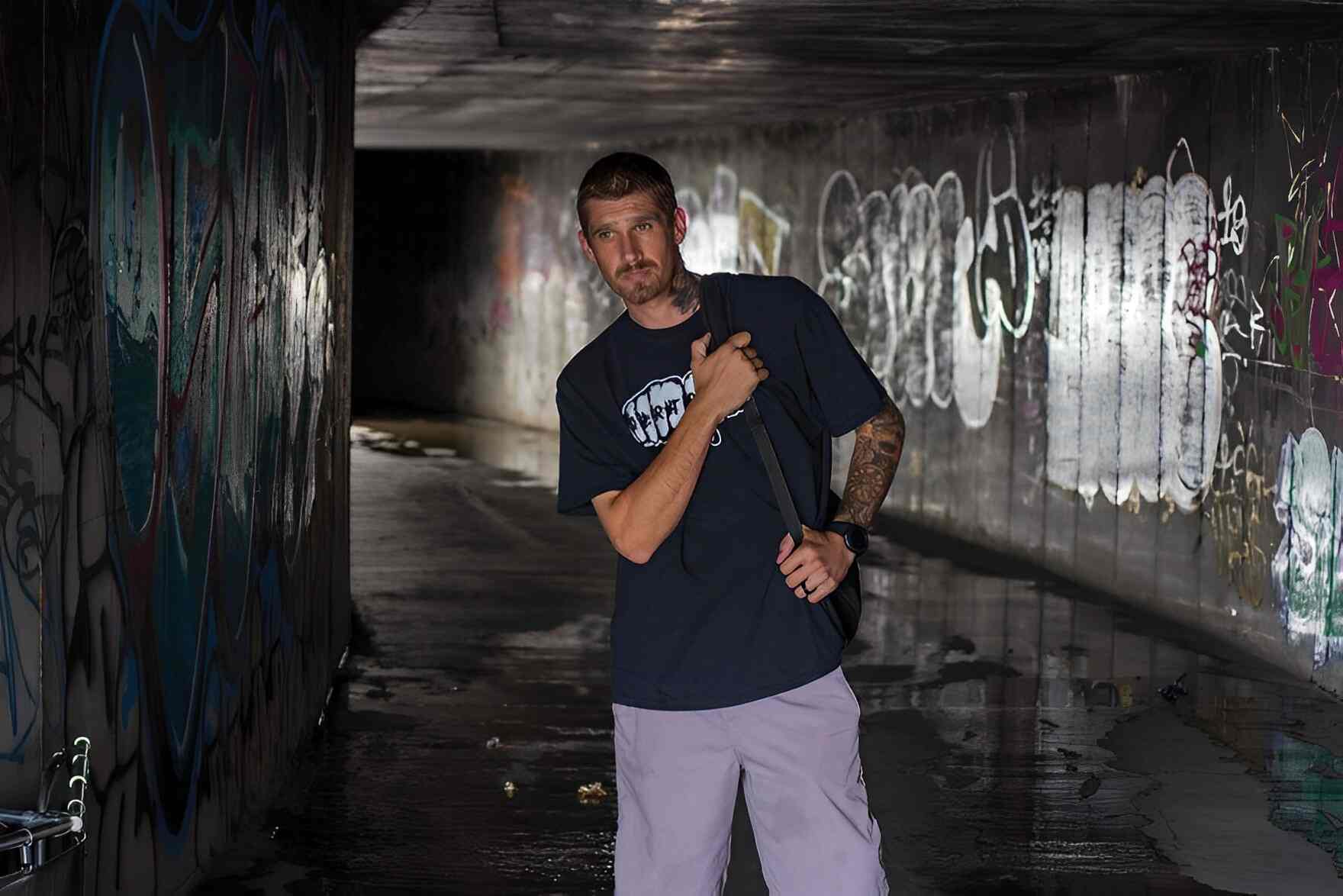
Source: Facebook/Second Chance
He had a special tunnel job reserved only for the newest residents. Paul was responsible for always informing other residents when someone was coming.
Paul Learns the Ropes
Paul learned the various sounds for alerting visitors, especially about the police. Although this was a different pace from the life he knew above the tunnels, he was happy to have shelter and a community to share it with.
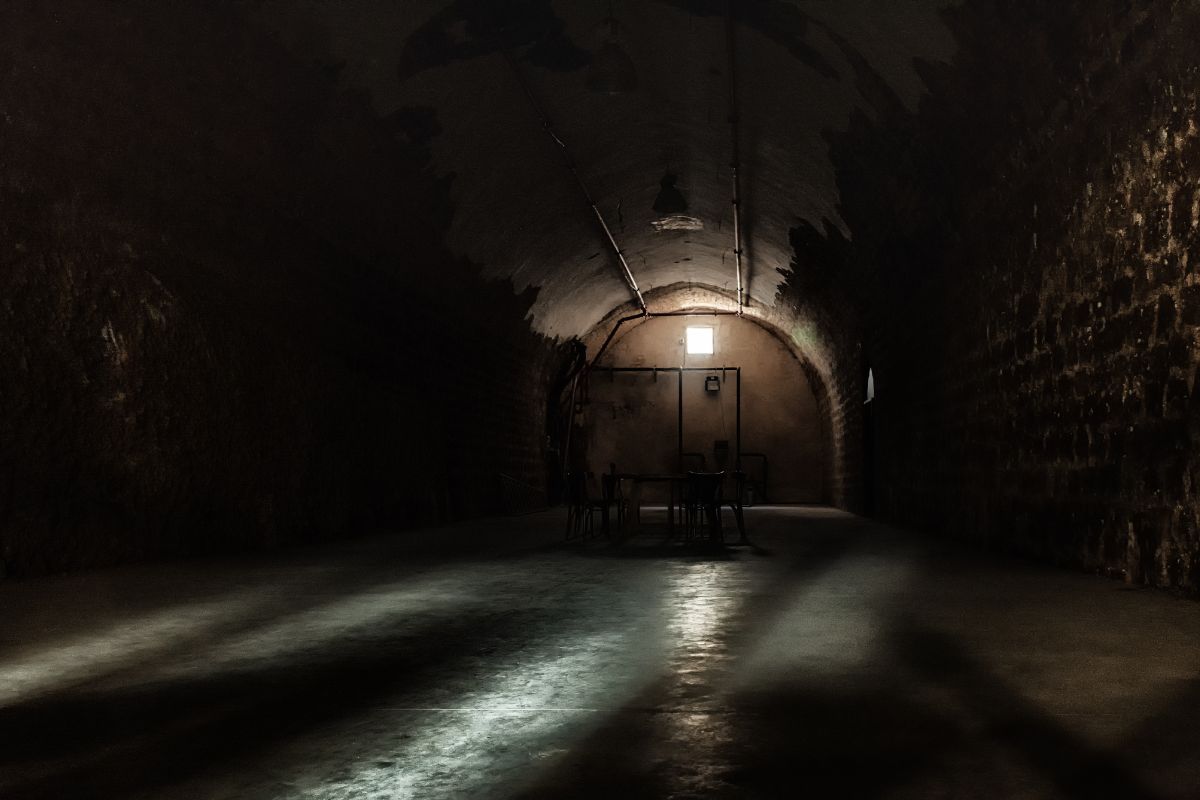
Source: Getty Images
Paul soon learned that there were codes the tunnel residents lived by, and mutually agreed upon rules that all residents, including himself, had to follow.
Living By the Rules
The consequence of breaking the code was a scary new reality for Paul—an infraction meant you could simply return from a day’s hustle and find your items on fire.
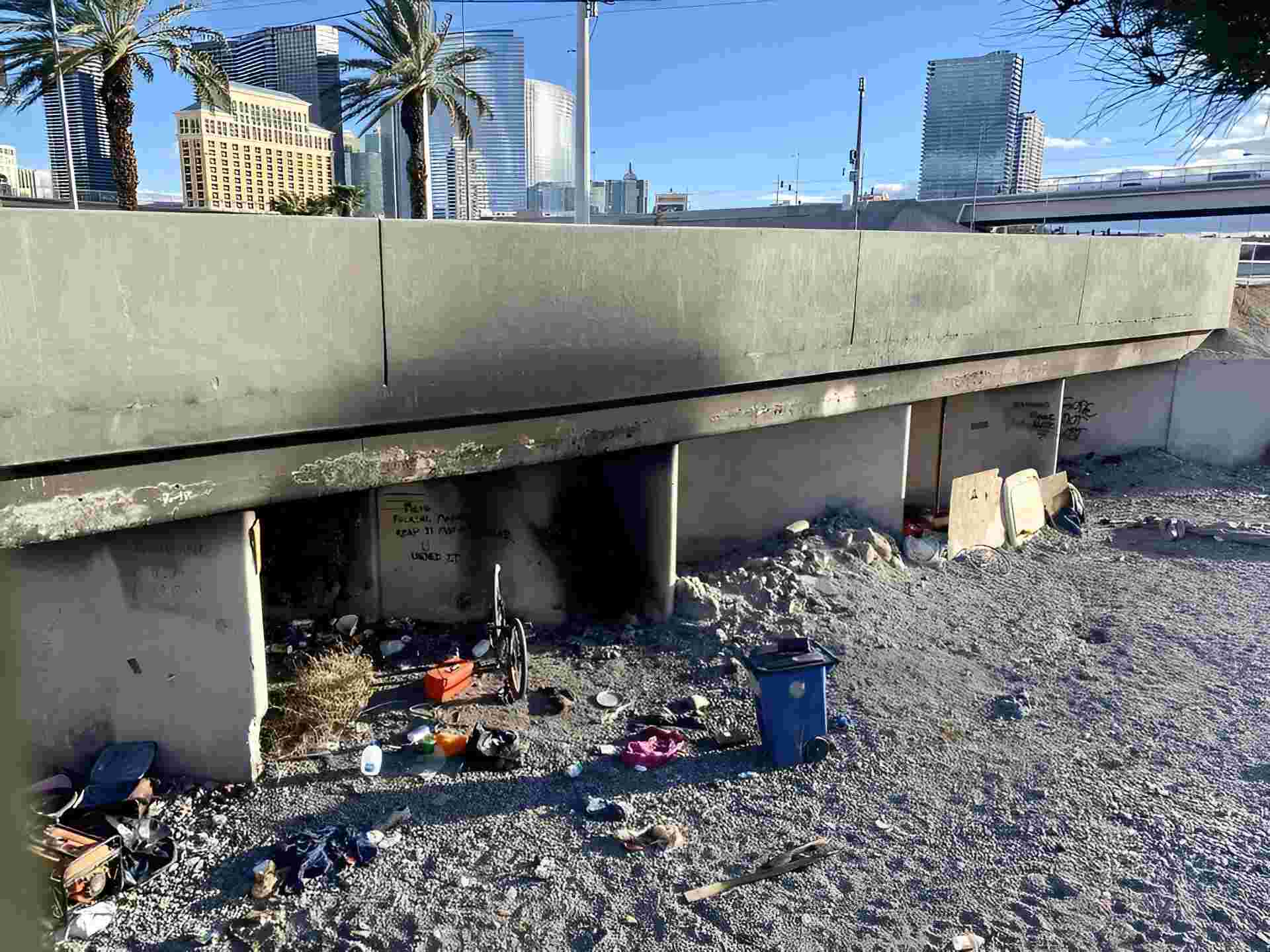
Source: Reddit
This was the chosen method of evicting residents from the tunnels, and it was the most effective.
Settling Into a New Home
Paul settled into his new home and got acquainted with more residents in the underground city. He loved to explore the labyrinthine maze and develop new friendships.
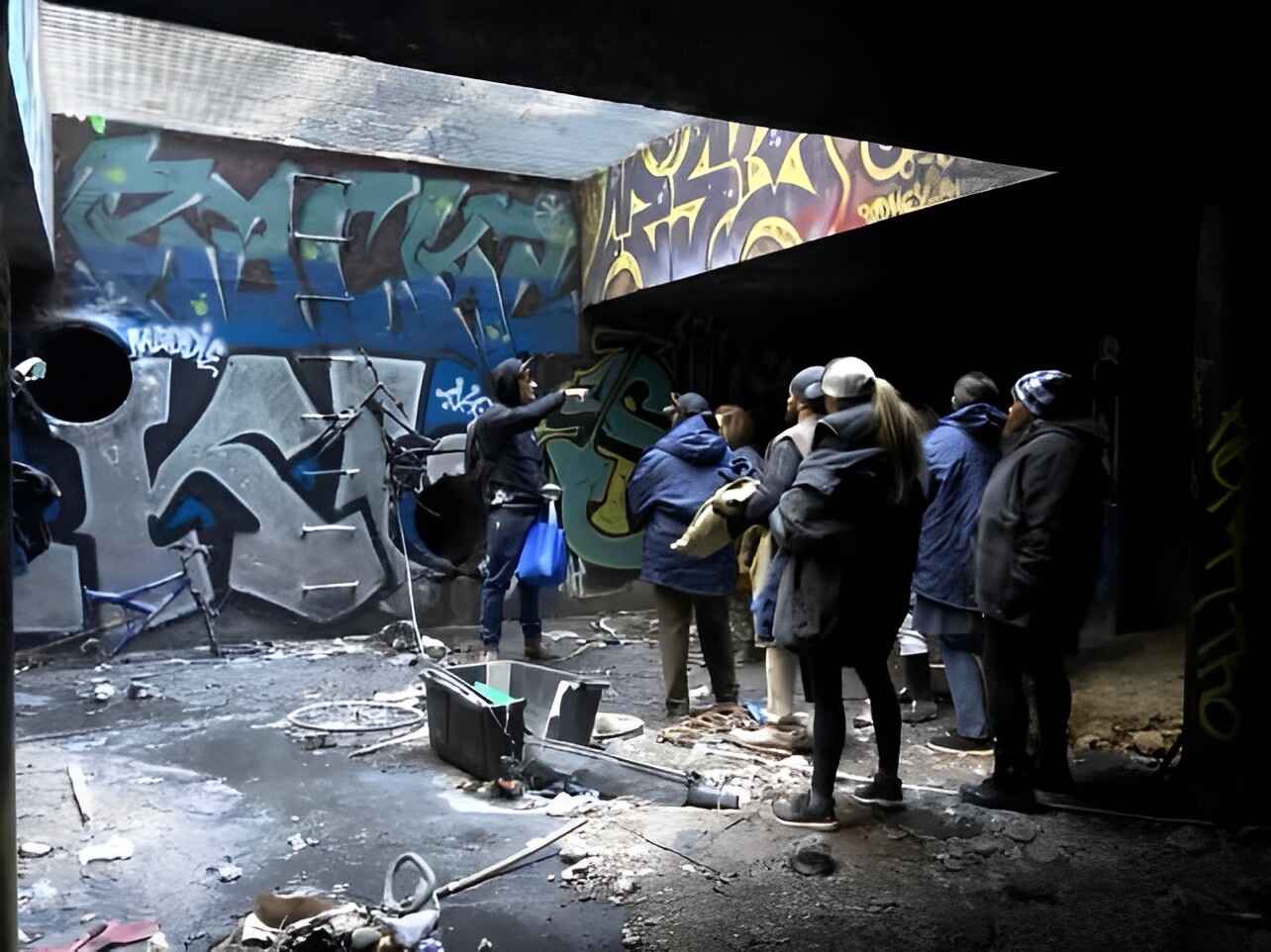
Source: Shine a Light Foundation/Facebook
Paul even had a few relationships with other tunnel residents. As he became a regular on the scene, he was loved by all and content with his new life.
Tunnel Savvy Leads to New Business Ventures
Few people knew the tunnels the way that Paul did. When he wanted to, he could speed through the labyrinth of tunnels on his bike in pitch darkness, and never miss his way.
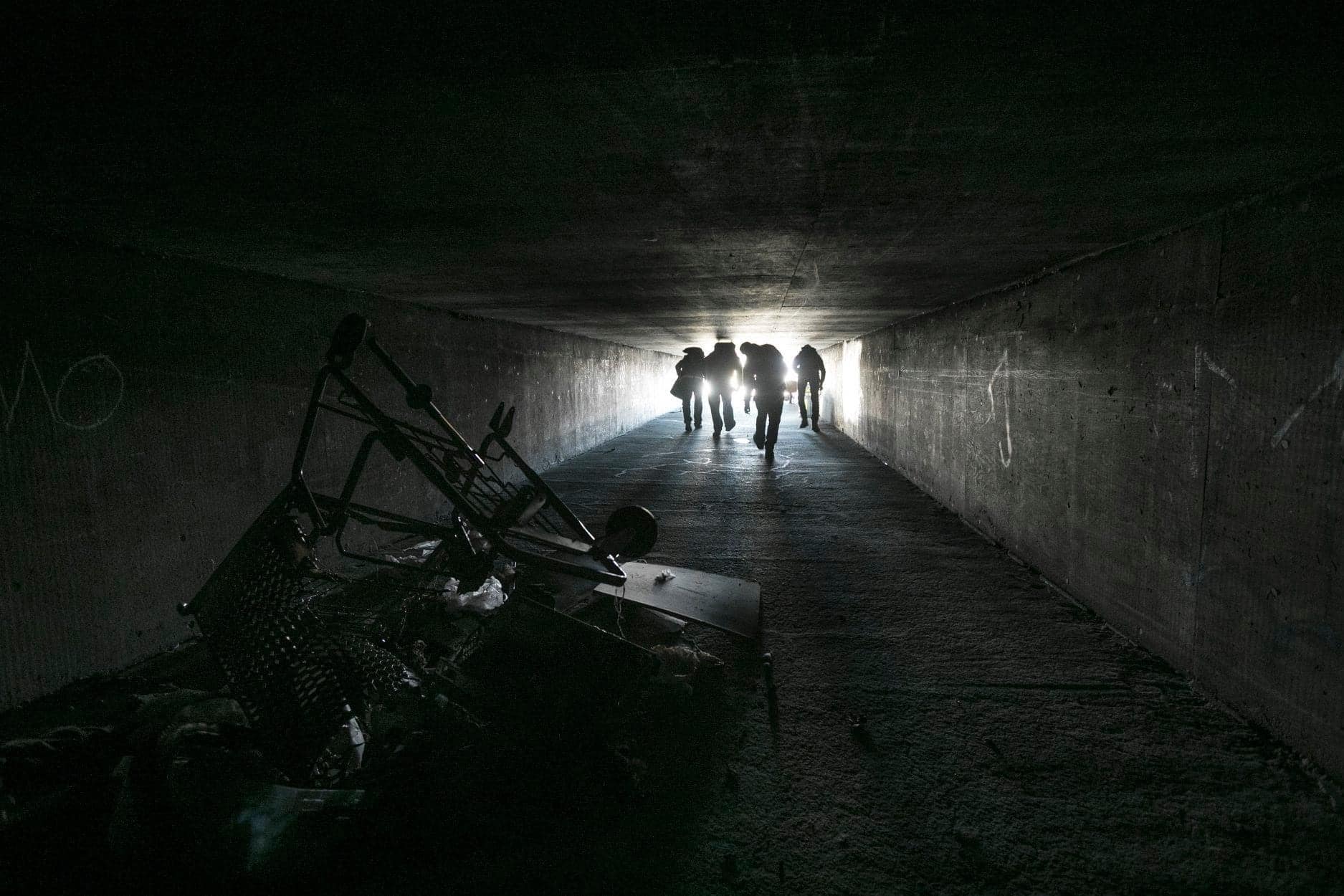
Source: Shine a Light Foundation/Facebook
Soon, Paul started to deal drugs from his new home. He hatched an elaborate plan to ensure he thrived in his new business.
Living on the Edge
Paul would meet buyers at various grates around town, take their money through the bars, and pass them the drugs. After the deed, he would speed off into the darkness, never getting caught.
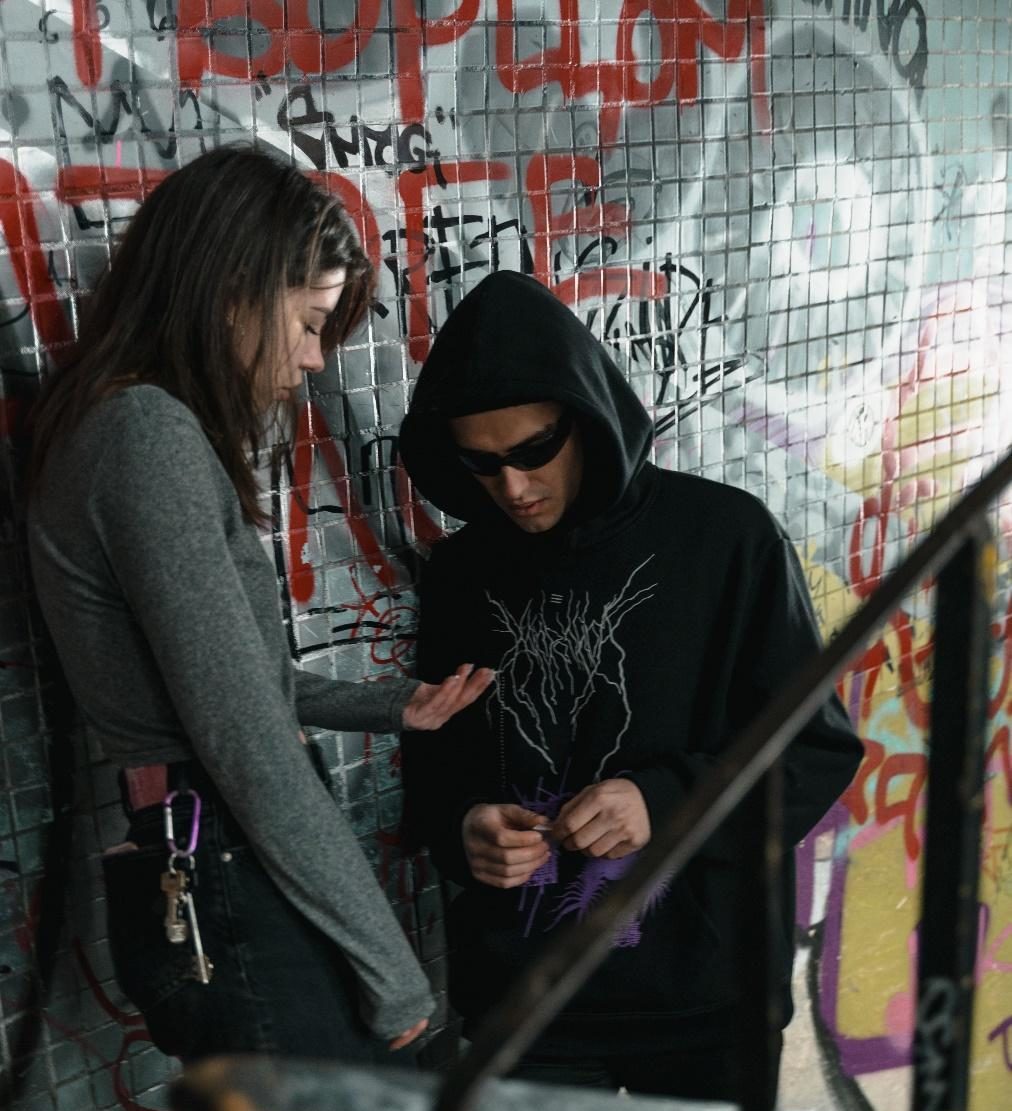
Source: Pexels
At first, Paul wasn’t sure his plan would work, but it soon proved fruitful. As his clientele grew, he stacked up his funds and dealt even more drugs.
The Rise and Fall of a Drug Lord
As his business grew, so did the attention it drew. Soon, Paul ran off all the drug-dealing veterans who took him in. He became the best plug in town and recruited even more clientele. However, the good times weren’t without danger.

Source: Shine a Light Foundation/Facebook
He became the best plug in town and recruited even more clientele. However, the good times weren’t without danger.
A Sudden Change of Heart
Although Paul drew the type of attention he wanted, he also attracted the attention of the police. Soon, it all became too much for him.
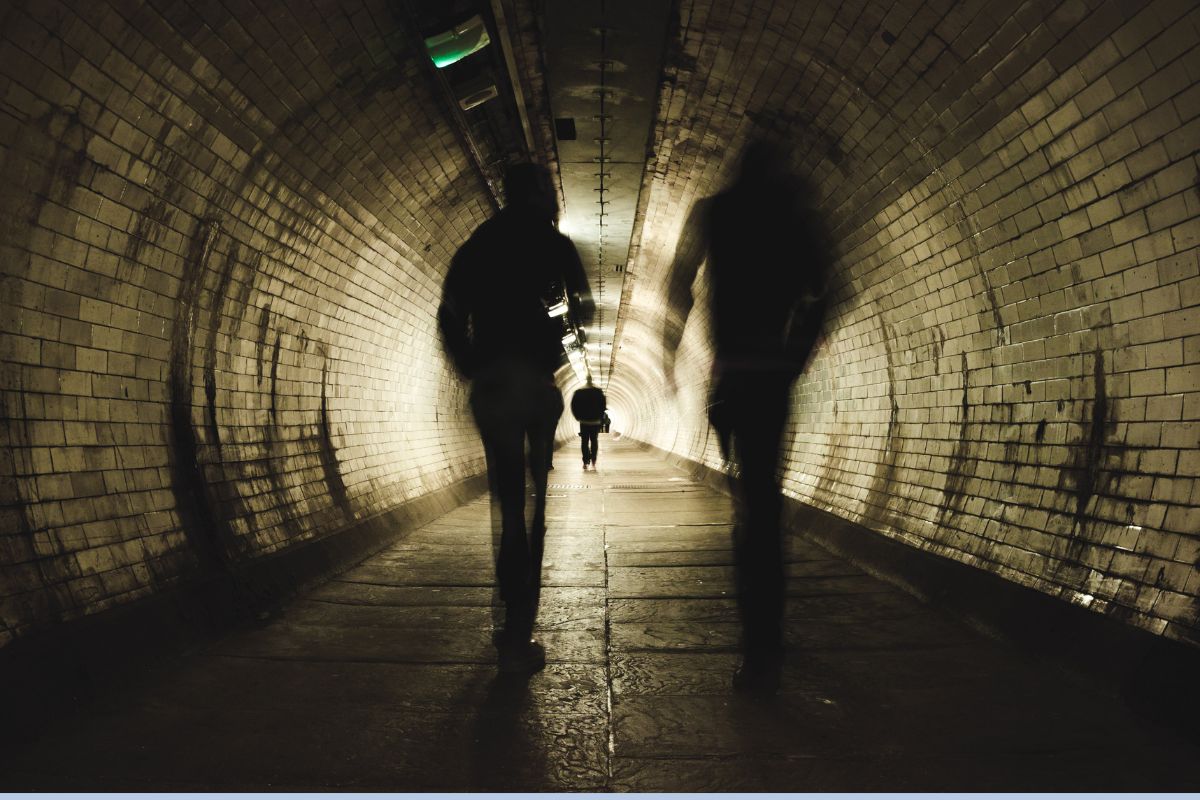
Source: Getty Images
After three years in business, Paul got tired of the drama, evading the police, and the sick feeling he couldn’t get rid of when he needed to use drugs. However, he was apprehended just before he called it quits.
Paul's Journey of Redemption
When Paul got arrested, he decided he was done with the old life. He entered drug court, got sober, and got a job at a car wash just above the tunnels where he once lived. Paul knew many people like him might also want to get out, so he took a step no one expected.
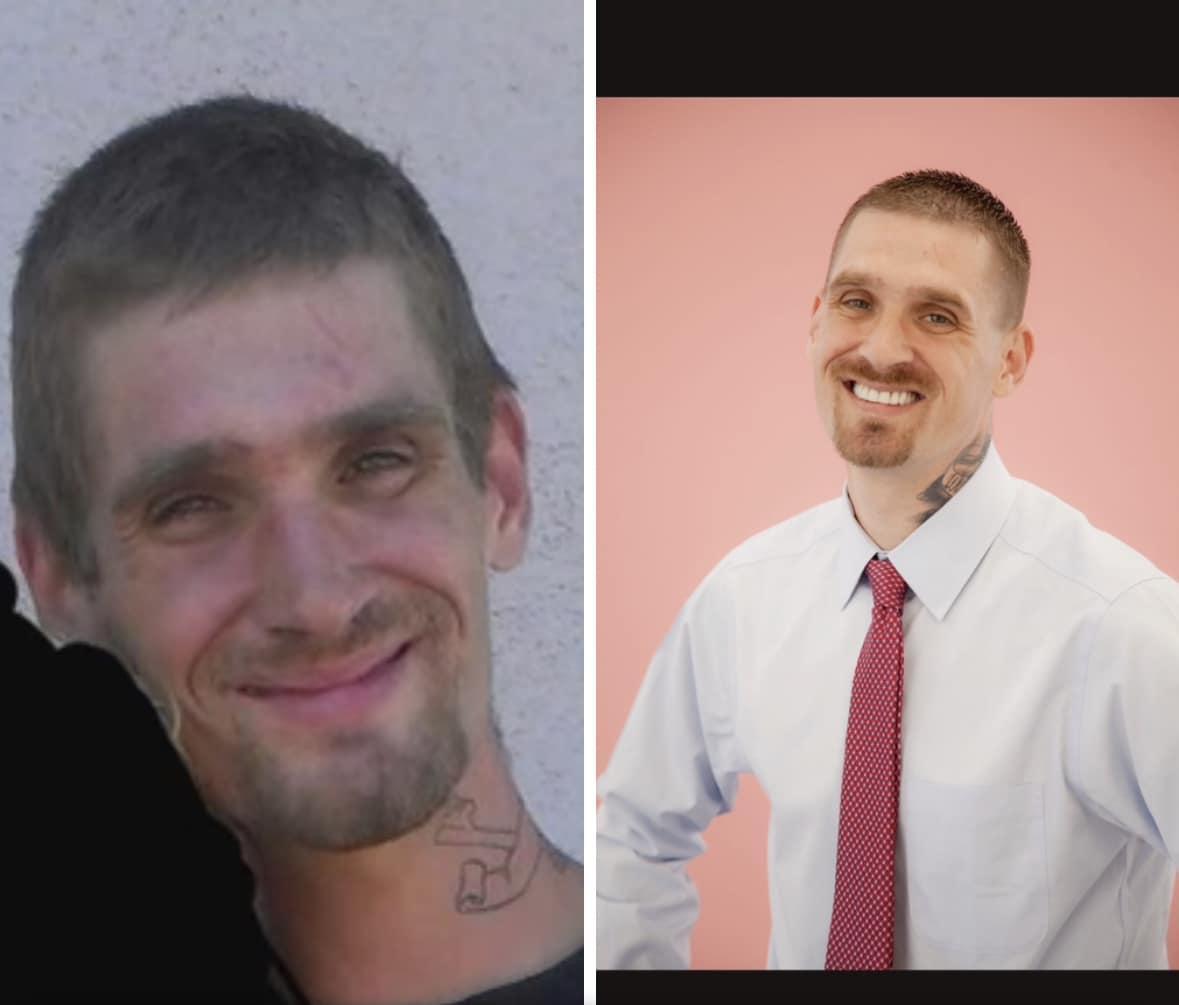
Source: Shine a Light Foundation/Facebook
He began volunteering at Shine a Light, which helped people just like him. When the founder decided to leave Las Vegas, he asked Paul if he would like to keep it going. Paul was ecstatic to oblige.
Lending a Helping Hand
In the time since, Paul has seen many people come and go from the underground community. Although the tunnels are dark and bleak, he can’t resist the pull to return to the underground city and help where possible.
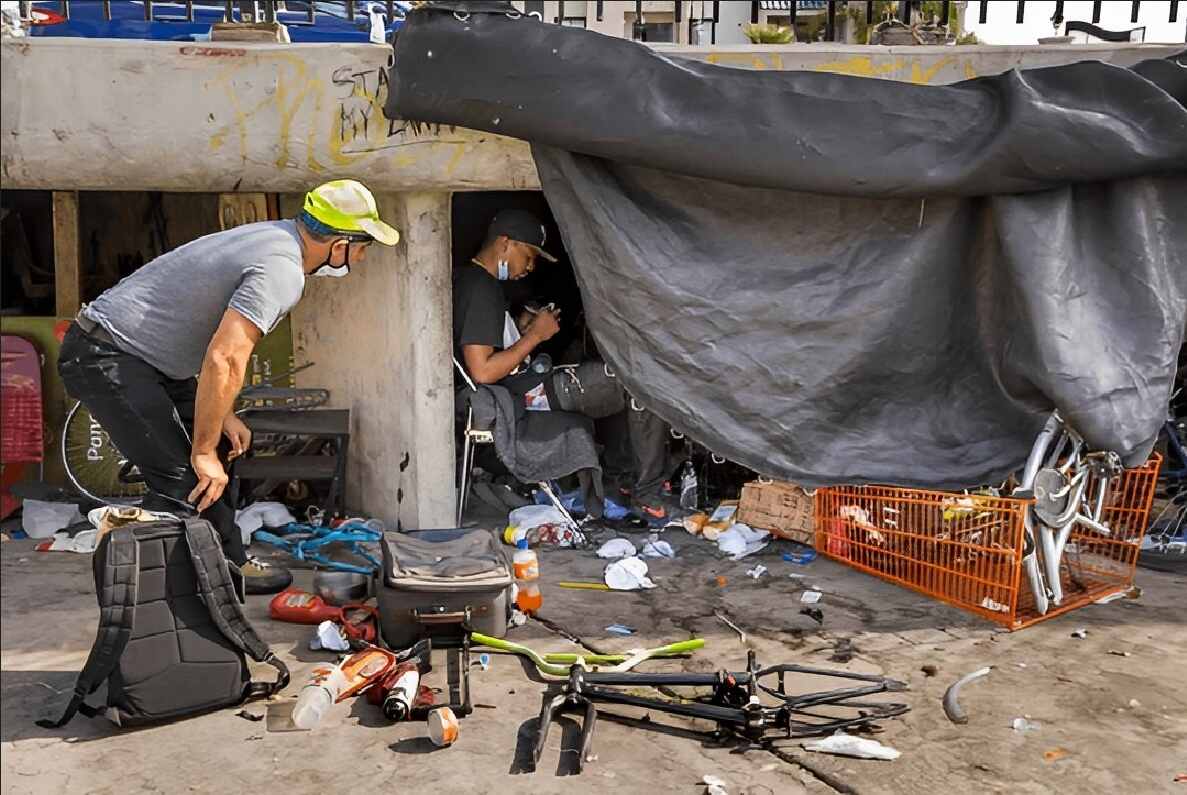
Source: Reddit
Paul was often in the tunnels visiting various camps and communities, always happy to help wherever possible. He loved handing out supplies and always offered to help other residents whenever they were ready to leave the tunnels.
Shedding Light on the Hidden City
Paul and his outreach program Shine a Light were instrumental in drawing attention to the underground city. The city is a symbol of hope and a testament to the resilience of the human spirit. It remains a reminder that even in the darkest places, there’s a potential for light.
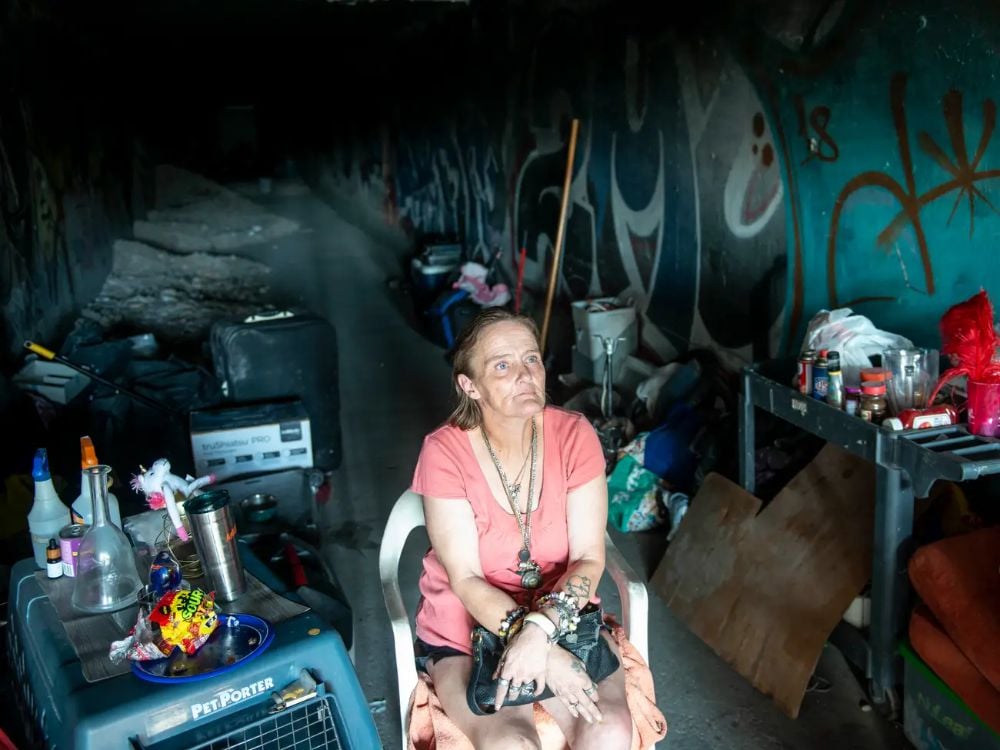
Source: Pinterest
Paul has seen many residents move to different cities, get arrested, and even get clean. And while no one knows what awaits the community that has been created in the tunnels, Paul and his team are always ready to lend a helping hand when needed.
